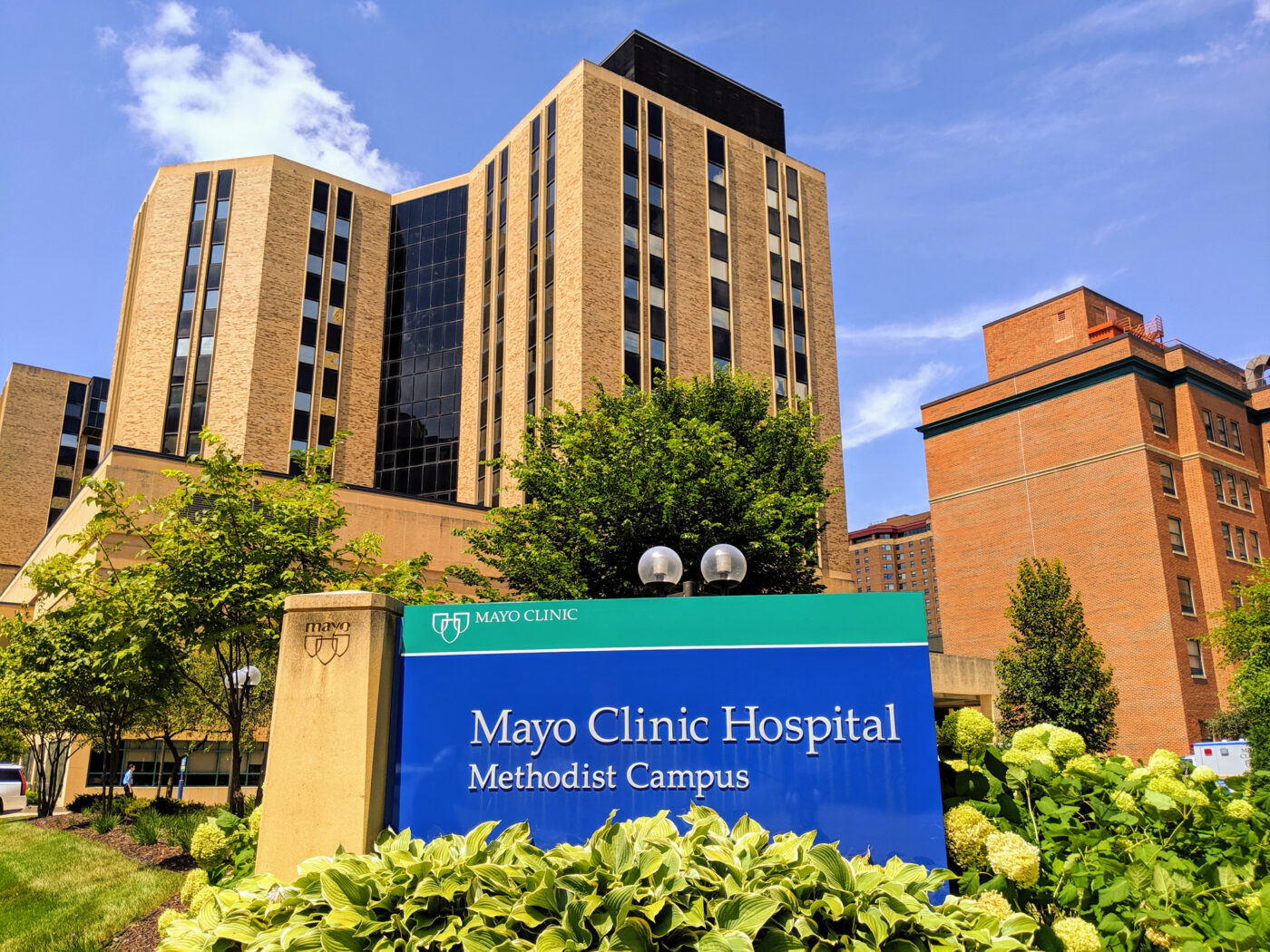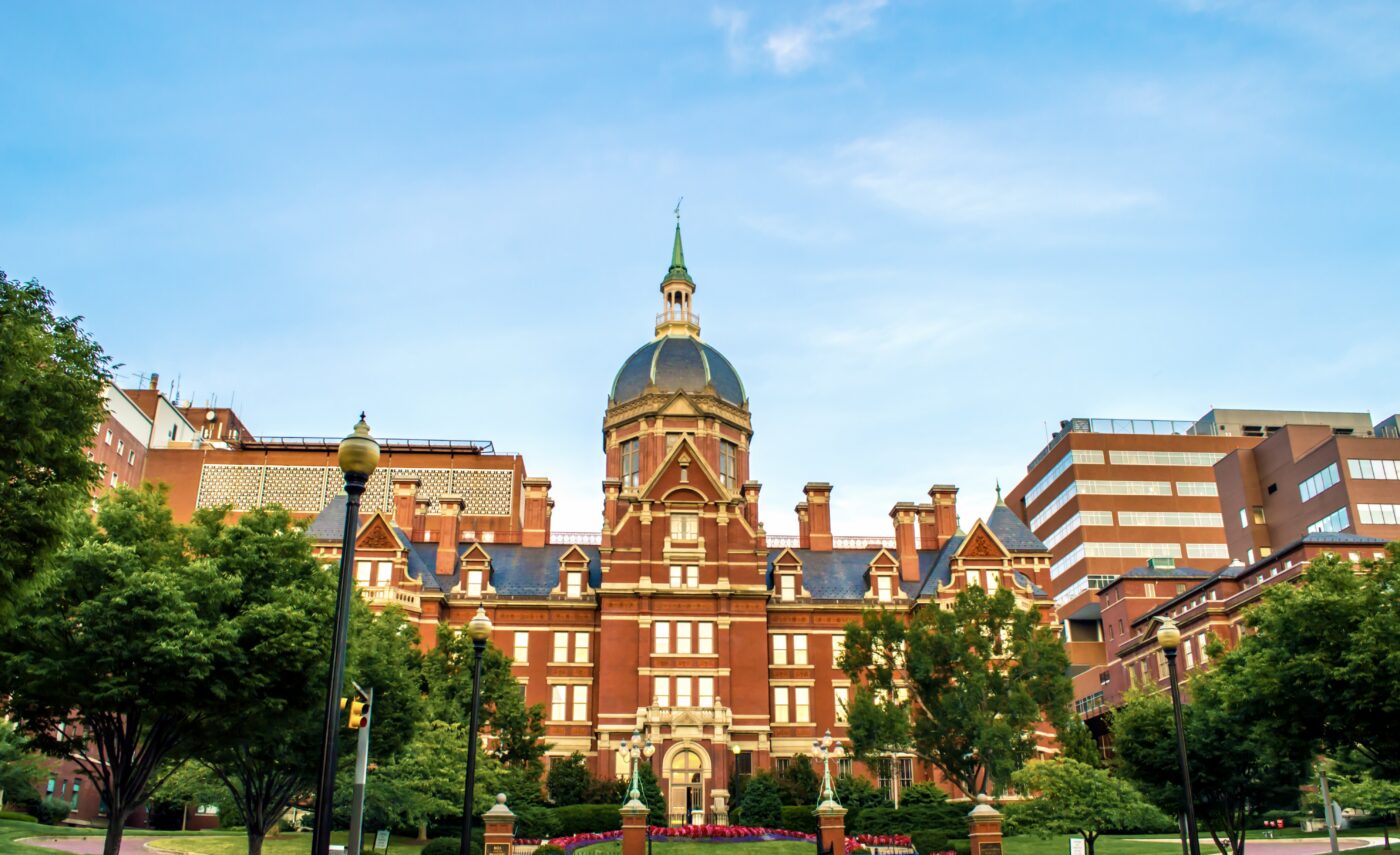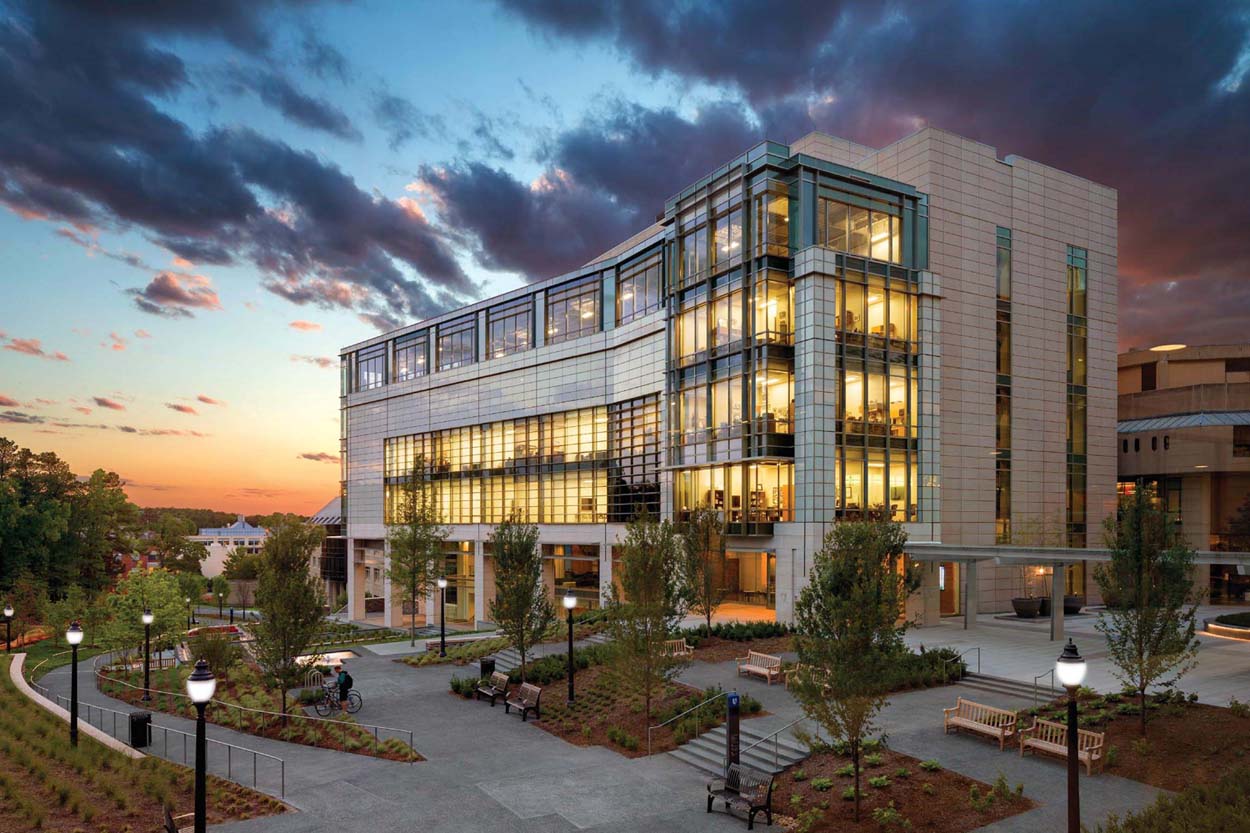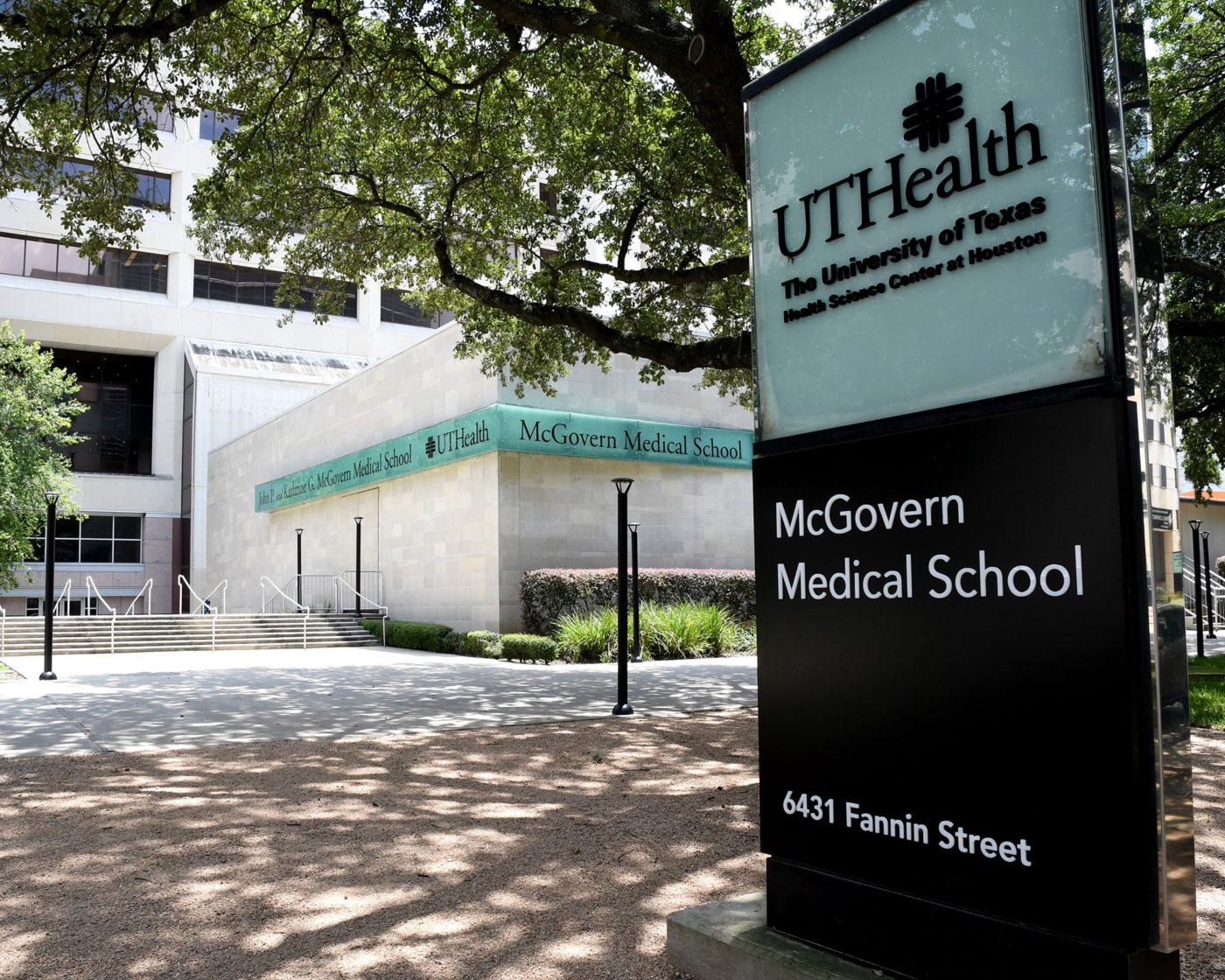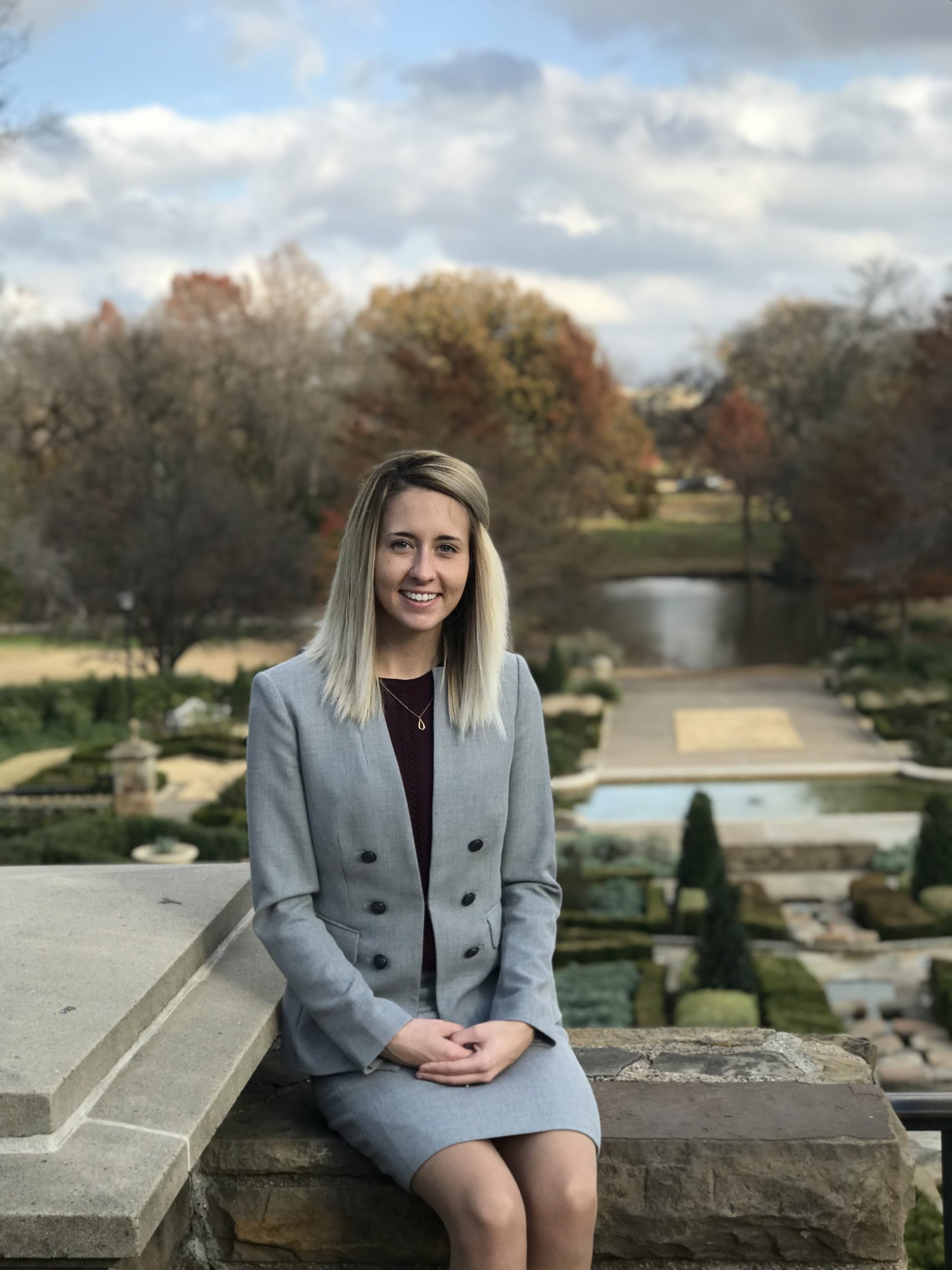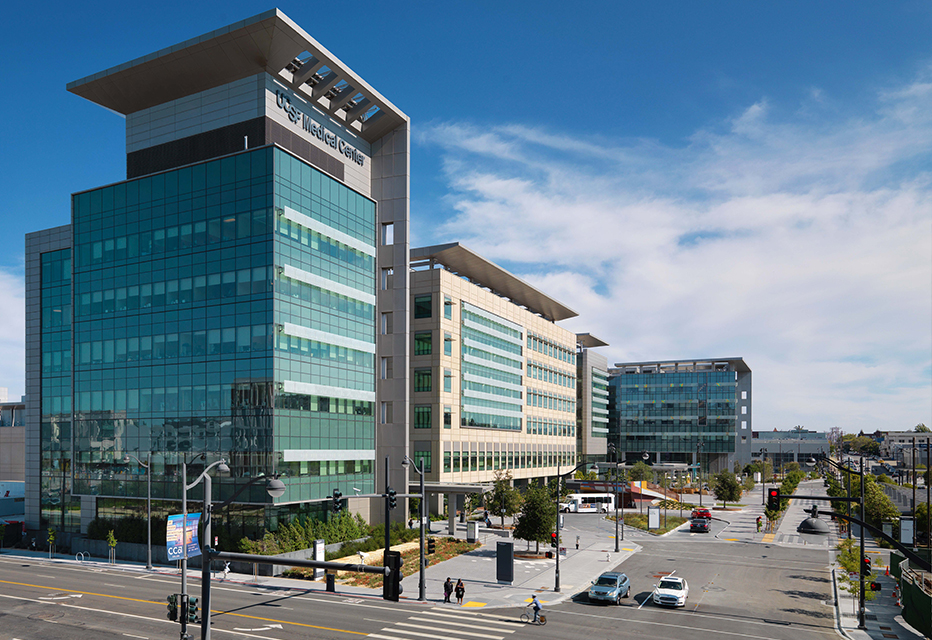UC Davis School of Medicine is located in the heart of Sacramento, California, and has been serving Northern California for as long as it has been a medical school. It’s connected to the UC Davis Medical Center, which is the only Level 1 Trauma Center in Inland California.
The UC Med School acceptance rate speaks for itself and testifies of the school’s high-quality education, dedication to underserved communities and collaboration with other schools in the UC Davis family. UC Davis is part of the University of California system, which also includes UC Riverside, UC Irvine and UC San Diego.
In this definitive guide to getting into UC Davis School of Medicine, we’ll cover everything you need to know to get into this prestigious school. Knowledge is power! So use everything you learn in this guide to make your application as strong as possible. Should you have questions about the medical school application process, don’t hesitate to reach out to us. International Medical Aid has helped thousands of students get into medical school through our medical school admissions consulting and healthcare internship programs. We’re here for you!
Included in This Guide
- The UC Davis Med School acceptance rate
- Medical programs offered at UC Davis Medical School
- Cost of attendance
- What it takes to get in: GPA, grades and pre-requisites
- Submitting your primary and secondary applications
- UC Medical School Secondary Essays
- Everything you need to know for your UC Davis Medical School interview
- Applying to other medical schools
UC Davis Medical School Acceptance Rate
The UC Med School acceptance rate is very low, even lower than Brown or Yale. Only 1.8% of applicants are admitted. This extremely low number is partially due to the school’s preference for students who hail from Sacramento and who have connections at the school. If that’s you, you’re in luck!
UC Davis School of Medicine ranks as:
#4 for Most Diverse Medical School
#9 for Family Medicine
#11 for Primary Care
#48 Best Medical School for Research
#49 for Most Graduates Practicing in Primary Care Fields
#118 for Most Graduates Practicing in Rural Areas
Medical Programs
UC Davis School of Medicine offers the following medical programs for prospective students:
- Doctor of Medicine
- Doctor of Medicine / Doctor of Philosophy
- Doctor of Medicine / Master of Public Health
- Doctor of Medicine / Master of Business Administration
- UC Davis PRIME / Community Health Scholars Programs
– Accelerated Competency-Based Education in Primary Care (ACE-PC)
– Rural Program in Medical Education (Rural-PRIME)
– Reimagining Education to Advance Central California Health (REACH)
– Transforming Education and Community Health for Medical Students (TEACH-MS) - Master of Science in Health Informatics
- Master of Public Health
- Clinical Laboratory Scientist Training Program
- Stem Cell Training Program
- Mentored Clinical Research Training Program
In this section, we’ll discuss the MD and dual-degree options at UC Davis Medical School. The other listed programs are linked to their respective pages on the UC Davis website.
Doctor of Medicine
UC Davis School of Medicine provides students with an innovative educational experience based on kindness, compassion and collaborative work. The program is divided into four years.
Year 1
Year 1 is split into two parts: Foundations and Mechanisms & Diseases.
Year 1
Foundations Block
- Gross Anatomy
- Human Physiology
- Cell and Tissue Biology
- Molecular Medicine
- Population Health and Evidence-based Medicine
- Health and Humanity
- Clinical Skills A (MS1)
- Clinical Experiences A (MS1)
Mechanism and Disease Block
- E.N.R.G Endocrine/Nutrition/Reproduction/Genetics
- Pharmacology
- Oncology
- General Pathology
- Microbiology
- Immunology
- Critical Appraisals of Topics in Population Health
- Health and Humanity
- Clinical Skills A (MS1)
- Clinical Experiences A (MS1)
Year 2
Brain and Behavioral Block
- Clinical Neurosciences
- Neuroanatomy
- Clinical Psychiatry
- Foundations of Bioethics
- Systemic Pathology
- Pharmacology B
- Population Health and System Science
- Clinical Skills B (MS2)
- Clinical Experiences B (MS2)
- Pathophysiology Block
- Musculoskeletal
- Dermatology
- Hematology
- Pulmonary System
- Cardiovascular System
- Nephrology
- Gastroenterology
- Systemic Pathology
- Pharmacology C
- Population Health and System Science
- Clinical Skills B (MS2)
- Clinical Experiences B (MS2)
Year 3
You’ll spend two months in each of the following clerkships:
- Internal Medicine
- Surgery
- Pediatrics
- OB/GYN
- Psychiatry
- Family Medicine (4 weeks)
- Elective (4 weeks)
During these clerkships, you’ll go through in-patient and ambulatory rotations that provide you with supervised patient care experiences. Didactic sessions and interactive cases are part of each clerkship.
Year 4
38 weeks of Required Coursework
- 4 weeks of Acting Internship Emergency Medicine
- 4 weeks of Acting Internship Inpatient Core Specialty
- 4 weeks of Acting Inpatient Any Specialty
- 4 weeks of Scholarly Project or Special Study Module
- 20 weeks of Additional Electives
- Transition to Residency
Residency Options
- Anesthesiology
- Dermatology
- Emergency Medicine
- Family & Community Medicine
- Internal Medicine
- Neurological Surgery
- Neurology
- Nuclear Medicine
- Obstetrics and Gynecology
- Ophthalmology
- Orthopedic Surgery
- Otolaryngology
- Pathology
- Pediatrics
- Physical Medicine & Rehabilitation
- Plastic Surgery
- Psychiatry
- Radiation Oncology
- Radiology
- Surgery
- Thoracic Surgery
- Urology
A comprehensive list of residency and fellowship options is available on the UC Davis Medical School website.
More details and information on the Doctor of Medicine program can be found on the UC Davis School of Medicine.
Community Health Scholars / PRIME
The Community Health Scholars program at UC Davis School of Medicine is under the umbrella of the traditional MD program. These programs allow you to choose an emphasis within allopathic medicine and earn your MD with that emphasis in your desired field. Options include rural medicine, urban medicine for underserved communities, a three-year MD program for future primary care providers and a program to become a doctor and professor.
Let’s look at each one. Please keep in mind that these degrees do not grant you a dual degree. You will have your MD but not an MS. Dual-degree options are listed below these programs. Feel free to scroll down if that’s what you’re looking for!
Accelerated Competency-Based Education in Primary Care (ACE-PC)
The ACE-PC program is reserved for applicants who already have some primary care experience and are committed to working in primary care. You can choose between working in Adult Internal Medicine or Family Medicine. Both areas fall under the primary care umbrella and are desperately needed in California.
UC Davis School of Medicine, Kaiser Permanente-Northern California and the American Medical Association partnered to make this program possible. If you’re admitted into the program, you’ll complete your MD training in only three years. You’ll also have conditional acceptance to a residency program upon completion of your clerkships. Out of the 120 students admitted into the MD program every year, only six to eight students are accepted into the ACE-PC program.
The curriculum contains the following:
Year 1
- Fundamentals
– Scribe
– Doctoring I - Traditional Year 1 Coursework (as described in the MD program)
- Longitudinal Primary Care Clinic at Kaiser Permanente
- Primary Care Clerkship: Part 1
Year 2
- Primary Care Clerkship: Part 1 (cont’d)
- Traditional Year 2 Coursework (as described in the MD program)
- Longitudinal Primary Care Clinic at Kaiser Permanente
- USMLE Step 1 Exam
- Inpatient Blocks
Year 3
- Longitudinal Integrated Clerkships:
– Outpatient Family Medicine
– Internal Medicine
– Obstetrics and Gynecology
– Pediatrics
– Psychiatry
– Surgery - Longitudinal Primary Care Clinic at Kaiser Permanente
- USMLE Step 2 Exams
- Post-Clerkship:
– Inpatient AI
– Specialty-Specific AI
– ED Advanced Clerkship
– Four-week elective
Years 4-6
- Residency:
– Internal Medicine OR
– Family Medicine
If you’re interested in applying to the ACE-MD program, you’ll apply to the MD program through AMCAS and select your interest in ACE-MD.
Rural Program in Medical Education (Rural-PRIME)
The Rural-PRIME program at UC Davis School of Medicine was designed to increase the number of physician-leaders who practice rural medicine in California. Being a physician-leader means you’ll pave the way for other doctors to follow. Your example will be important. You’ll be a role model for others.
Additionally, nearly 20% of Californians live in rural areas, but only nine perfect of physicians practice medicine in those rural areas. The Rural-PRIME program was designed to address that 11 percent gap in rural patient care. This is yet another reason why UC Davis needs you to become a physician-leader. You can set an example for current doctors andfuture doctors in rural medicine. Rural Californians deserve the same quality of healthcare as Californians who live in urban areas.
If you’re interested in the Rural-PRIME program, apply to the MD program through the American Medical College Application Service and select your interest in the Rural-PRIME program.
Reimagining Education to Advance Central California Health (REACH)
The REACH program is designed for applicants who plan to practice medicine in Central California. The REACH program is specifically looking for Central California natives and/or applicants who have extensive knowledge of the area. That knowledge will be vital to understanding the community’s needs and improving the healthcare that’s provided.
To apply for this program, you’ll submit your application to the American Medical College Application Service, and select REACH. After completing the four-year MD program, you’ll be assigned to residencies in northern Central California.
Transforming Education and Community Health for Medical Students (TEACH-MS)
The TEACH-MS program is specifically designed for applicants who want to practice primary care medicine in urban areas for underserved communities. Many individuals living in urban areas are underserved because of their socioeconomic status. But lack of ability to pay for healthcare should not prevent anyone from receiving the care they need.
The curriculum is the same as the traditional, four-year program. You’ll be assigned to residencies in the greater Sacramento area, and you’ll be mentored by physicians with community-based healthcare experience. You’ll also get to work in community health centers during your clerkships.
To apply for TEACH-MS, submit your AMCAS application, and select TEACH-MS.
Those are the programs offered under the Community Health Scholars / PRIME program at UC Davis School of Medicine. Good luck if you choose to apply to one of these programs! Now, let’s look at the dual-degree options.
Dual-Degree Options at UC Davis School of Medicine
Doctor of Medicine / Doctor of Philosophy
Medical and graduate educations are combined to simultaneously provide students with MD and PhD experiences. Admission into the MD program includes all your costs being funded, so you won’t need to worry about financial aid. Automatic funding doesn’t come with the PhD portion, but you have multiple options to get it funded.
The MD portion of the program is the same as the traditional, four-year program. That’s where you’ll start. You won’t apply to the PhD portion of the program until your second year of medical school. After passing USMLE Step 1, you’ll switch over to your PhD studies. There are specific requirements that come with earning your PhD. Upon successful completion of those requirements, you’ll go back to the School of Medicine to complete your clerkships. The program takes approximately eight years to finish.
- Year 1: Medical School
- Year 2: Medical School, USMLE Step 1
- Years 3-7: PhD Program
- Year 8: Medical School
Doctor of Medicine / Master of Public Health
The MD/MPH program is specifically designed for students who care not only about their patients but also about public health topics like disease prevention and community health. Subjects like biostatistics, environmental health and behavioral science are covered. The degree can be completed in five years. Students spend their first three years in the MD program, followed by one year in the Master of Public Health program. Finally, you’ll return to the School of Medicine to complete your final year.
- Year 1: Medical School
- Year 2: Medical School, USMLE Step 1
- Year 3: Medical School
- Year 4: Master of Public Health
- Year 5: Medical School
You’ll take the following courses while in the Master of Public Health program:
- SAS Programming
- Program Planning and Evaluation
- Health Services Administration
- Introduction to Medical Statistics
- Principles of Environmental Health Science
- Public Health Informatics
- Principles of Epidemiology
- Social & Behavioral Determinants of Health
- Biostatistics for Health Sciences
- Topics in Public Health Seminar
- Public Health Practicum
More information on the program is available on the UC Davis website.
Doctor of Medicine / Master of Business Administration
The Doctor of Medicine and Master of Business Administration dual degree is made possible by the UC Davis Graduate School of Management and the School of Medicine.
To be considered for this dual-degree combination, you’ll need to first enroll in the MD program. Once you begin your second year in the program, you’ll apply for the MBA program. If accepted, you’ll complete the MBA portion of your degree during your fourth year at UC Davis. Finally, you’ll return to the MD program and complete your clerkships.
- Year 1: Medical School
- Year 2: Medical School, USMLE Step 1
- Year 3: Medical School
- Year 4: Master of Business Administration
- Year 5: Medical School
Here are some of the courses you’ll take to earn the MBA portion of your dual degree:
- Foundations of Analytics
- Information, Insights, and Impact
- Data Management
- Data Visualization
- Statistical Reasoning and Exploration
- Practicum – Initiation
- Organizational Issues in Implementing Analytics
- Data Design and Representation
- Advanced Statistics
- Machine Learning
- Topics in Business Analytics
- Practicum – Elaboration
- Application Domains
- Big Data
- Analytic Decision Making
- Topics in Business Analytics
- Practicum – Analysis and Implementation
More information on the program is available on the UC Davis website.
Those are the programs offered at UC Davis Medical School. Now, let’s look at how much it costs to attend UC Davis School of Medicine.
Cost of Attendance
Are you an undergraduate student? Are you a California resident? Will you be living on-campus or at home? All these questions must be taken into consideration when determining your cost of attendance at UC Davis School of Medicine. UC Davis has a website dedicated to answering all your financial questions. Simply select what kind of student you are, and you’ll be able to see how much it will cost for you to attend UC Davis.
Getting Into UC Davis Medical School
Class Statistics
UC Davis Medical School only accepts 1.8 percent of all applicants. Here are the stats for the Class of 2025:
- 132 students
- 3.72 overall GPA
- 510 average MCAT score
- 78% percentile
- 66.7% female students
- 31.8% male students
- 73.5% disadvantaged students
- 41.7$ first-generation students
- 23.5% White students
- 35.6% Asian students
- 23.5% Hispanic/Latinx students
- 11.4% Black/African American students
Required Pre-Requisites
UC Davis School of Medicine requires applicants to take several courses to be considered for admissions. Online versions of these classes are accepted. Labs are not required. You must take 90 credit hours from an accredited, undergraduate university. Additionally, only MCAT scores from the past 36 months are accepted, with a few exceptions for students affected by COVID-19.
- Biological Sciences: 1 year
- General and Organic Chemistry Sequences: 2 years
- Physics: 1 year
Admissions Criteria
UC Davis School of Medicine places a lot of emphasis on patient care, interpersonal skills and life-long learning. Healthcare, leadership and research experience are major factors in determining who’s accepted into the school. Life experience, in general, will also be taken into consideration.
For this reason, we highly recommend internship experience–the more, the better. International Medical Aid offers internship opportunities to students in unique destinations all across the globe. With our internships, you’ll participate in volunteer work abroad. We take our students to places like Kenya, Colombia and Tanzania.
You’ll shadow doctors and other healthcare professionals as they provide healthcare to those who need it. Participating in volunteer work abroad will provide you with an unforgettable experience. But not only that, it will stand out on your application. It will show the admissions committee that you’re open to all kinds of healthcare experiences. Have questions? We’d be happy to answer them.
Primary and Secondary Applications for UC Davis
Submitting your application to UC Davis School of Medicine begins with your primary application. Submitted through the American Medical College Application Service (AMCAS), this application includes your Work and Activities and your personal statement.
You’ll also want to complete the AAMC Situational Judgment Test. This is highly encouraged but not required. Applicants who don’t complete the test will still be considered. But applicants who take the test will be automatically giving themselves a boost.
UC Davis Secondary Applications & Essays
UC Davis School of Medicine carefully reviews each application received from AMCAS and determines which applicants meet the criteria to fill out a secondary application. So, if you don’t receive an invitation to fill out your secondary, then you aren’t being considered for admission.
You’ll want to submit your AMCAS as quickly as possible because UC Davis operates on a rolling admissions basis.
If you receive an invitation to fill out the secondary application, you’ll have a few essays to write. Whether you’re applying to the PRIME medical program determines how many essays you’ll write.
For the regular application, the questions are as follows:
Question #1
Are there any parts of your application that would concern the admissions committee? If so, please explain them here. (Examples include “metric trends, institutional actions, legal violations, etc.”) If there aren’t any areas of concern, enter N/A.
Transparency is very important. If there is something concerning on your application, this is your chance to explain what happened. We highly recommend taking this opportunity. What could look bad at first glance could look much better once explained.
Of course, if there’s nothing to explain, you can leave this blank.
Question #2
Do you have a connection to Northern or Central California? If “yes”, please explain.
Since UC Davis gives preference to applicants who have connections, we hope you have one. But if not, you’ll still be considered for admission. Examples of connections include knowing a faculty member or university employee or knowing friends or family who graduated from UC Davis.
Question #3
Please submit a list of activities that you want us to consider when reviewing your application. This list can be copied from your AMCAS application, but you will need to expound on it. Please limit your list to three, and limit each one to 500 characters. Include how this activity prepared you for a career in medicine.
You could write about becoming an EMT, going on an internship, doing volunteer work abroad or even volunteering locally. If your experience contributed to your desire to study medicine, then it’s appropriate to share it here.
Here’s an example:
Activity #1
My love of science began in middle school, and my desire to study medicine began in high school. My parents suggested that I “dip my toes” into the medical world to make sure it was right for me. So, I studied and became a Nationally Registered Emergency Medical Technician (EMT). This experience showed me that I truly loved medicine. Helping people in urgent need of medical care was thrilling for me. However, I learned that I didn’t want to be an EMT for my career. Leaving patients at the Emergency Room doors was hard for me. I never got to know what happened to them.
Activity #2
During my freshman year of college, I was invited by a professor to observe a group of his senior lab students. They were learning how to identify illnesses through lab tests. They had bacteria samples that they were testing. Some of the samples showed strep throat while others came back clear. After carefully observing how the students worked, I got to test a few samples. One of mine was positive for strep throat. It was amazing seeing the results and imagining someday testing bacteria from an actual patient. It was an eye-opening experience that fascinated me and encouraged my desire to spend more time in lab settings.
Activity #3
I regularly volunteered at various blood drives. Being an EMT allowed me to draw blood. There was one girl who came in wanting to donate, but she was very nervous. I spent a few minutes with her, helping her remember why she was there. Her blood could save someone else’s life. She was ultimately able to calm down enough for me to stick the needle in her. From there, it was easy. Watching her eat her chocolate chip cookie afterward made me smile. I realized how often I might have to calm patients down once I become a doctor. It felt very rewarding.
The following questions are for students interested in the PRIME TEACH-MS, ACE-PC, REACH and ARC-MD.
Question #1
For applicants interested in the Rural-PRIME program, please describe your experience with rural communities and share how those experiences make you a good fit for the program.
It’s not surprising that UC Davis has a program for rural healthcare. The entire University of California system places distinct importance on underserved populations. Having experience working with rural populations will show your dedication to getting into the program.
Question #2
“Describe your future plans to serve a rural, underserved community.”
Here, UC Davis wants you to envision the future. How will you contribute to healthcare for people who live in the middle of nowhere?
Here’s an example:
Living in the middle of nowhere is tough. For me and my family, it was cheaper than living in a big city. We had one small grocery store in our town. That got us through the weekdays. On the weekends, we would drive to Chula Vista, the closest major city to us. That’s where the mall was, which 13-year-old me loved. But that was also where the diabetes specialists were.
My mom was diagnosed with Type 2 Diabetes when I was 14 years old. She went into kidney failure about a year later. It was terrifying. I got home from school one day to find her passed out on the kitchen floor. The knife she’d dropped while cutting garlic bread into chunks had landed dangerously close to her. I didn’t know when she had passed out. It was my first time ever calling 911.
The ambulance rushed her to the tiny hospital in the town next door, but we had to drive over an hour to Chula Vista for her to see a specialist. Even though there was a specialist at the local hospital, he was booked out for months. That’s what happens when you live in the middle of nowhere. People from all the surrounding small towns went to see him. It must have been great business for him, but it sucked for my mom. She had to quit her day job to drive to Chula Vista three times a week. We couldn’t afford to live on just my dad’s salary, but my mom wouldn’t survive without the dialysis.
I want to practice rural medicine so that families like mine have better access to healthcare. I’m not as concerned with my specialty as I am with where I practice medicine. In addition to my location, I want to provide state-of-the-art care. I feel like people who live in rural healthcare settings are often stuck going to a tiny clinic that uses outdated systems. Just because you live remotely doesn’t mean that’s all you should get! I want to have the best patient software so that their care isn’t compromised because of where they live. I hope you’ll accept me to the Rural-PRIME program so that I can learn how to provide that kind of healthcare. I have the goal and the vision. I need the education to make that goal and vision my reality.
Question #3
For applicants interested in the TEACH-MS program, describe what experiences “have shaped your desire to be a primary care physician in urban, underserved communities.”
The TEACH-MS program is focused on underserved communities. But its focus is on urban communities instead of rural areas. Here, the admissions committee wants to know why you want to serve these specific communities. Residents in these communities are usually underserved because of their socioeconomic status. Instead of being underserved because of their remote location, they’re underserved because of lack of finances. Free health clinics and doctor offices that provide discounted services are vital to improving healthcare in these areas. In your essay response, explain why you want to provide healthcare in these settings.
Here’s an example:
I began working at my primary care physician’s office when I was 16 years old. It was the summer before junior year, and I wanted to have spending money for some upcoming summer music festivals. I was an EMT and got my CNA license that summer so I could earn an extra 50 cents per hour.
What started as a summer job turned into a part-time job that I would keep throughout high school. I’m very grateful for the experience I gained while working at Dr. Shaw’s office. I thought working at a doctor’s office would be a great idea because it paid significantly higher than most of the other jobs that hired high school students. Summer music festivals aren’t cheap! I just didn’t realize that I would fall in love with medicine and with helping people.
Dr. Shaw’s office was located in an underserved urban neighborhood. She took most insurance, but most patients were on Medicare or Medicaid. And what wasn’t covered under their plans wasn’t something they could afford on their own. There were countless times when I saw her provide a service for free because a poor patient was in need. She didn’t allow their socioeconomic status to affect the level of healthcare she provided.
Once I fell in love with medicine, I decided I wanted to become a nurse. But I didn’t feel right about my decision. Over time, I realized that I wanted to do exactly what Dr. Shaw did. I wanted to be a primary care doctor in an underserved, urban neighborhood. I would provide healthcare to people who really needed it and who would be grateful for it.
Dr. Shaw told me that she used to work at a nicer office a few towns over. But she didn’t stay there for very long because she saw a need in the underserved community. She wanted to make a positive impact on the lives of her patients. I looked up to and respected Dr. Shaw. She made a very positive impact on my life. Because of her, I know that’s the kind of medicine I want to practice.
Question #4
For applicants interested in the ACE-PC program, “please tell us what attributes or experiences would make you a good fit for an accelerated program in primary care.”
The admissions committee wants to know why they should admit you. This is your opportunity to talk yourself up. You should include internship or volunteer experience that has helped prepare you for an accelerated program. Also include why you want to practice primary care instead of going into another specialty.
I started volunteering at a primary care doctor’s office when I was fifteen. At first, I was a volunteer because I wasn’t old enough to legally be allowed to work. But once I turned sixteen, I became an employee. I knew I wanted to become a doctor, so I wanted to gain some experience. I figured that would help me stand out as a competitive applicant.
I started by shadowing Dr. Rigmore with his patients. He wanted me to learn how to interact with patients. He taught me that creating a safe place was key to establishing a healthy doctor-patient relationship. If a patient felt safe, they would be more honest with their symptoms.
After shadowing Dr. Rigmore, I was allowed to take patient vitals. I thought that was only for nurses, but it turned out that EMTs could also take vitals in a doctor’s office. I had become an EMT as another way to stand out on my college applications. My parents were doctors, and this was one of their recommendations.
I’ll never forget the first time I took a patient back. I was so nervous that I think my voice cracked when I called out the patient’s name in the waiting room doorway. Escorting her to the correct room and taking her vitals and symptoms was a surreal experience for me. I couldn’t believe I had just done that! Afterward, I almost squealed to myself but held myself back since I was at work. This was just one of the many experiences I had. With each one, I knew I wanted to become a doctor. This was the career path for me.
I believe I should be considered for the accelerated program because I balanced working 20 hours per week at Dr. Rigmore’s office while maintaining straight As during my junior and senior years of high school. I was also on the debate team, and I was a cheerleader. My schedule was very busy, but I was able to keep track of all of it. I want to become a doctor as quickly as possible so that I can quickly reach my goals and provide excellent health care. Thank you for considering me.
Question #5
For applicants interested in the REACH program, please “tell us about your ties to Central California” and share how you plan to make a positive impact on the communities of Central California.
It’s really important to either be a native Californian or to have lived in California for a long time. Having established ties is part of what makes REACH a successful program. We recommend going into as much detail as possible to show your connections.
Question #6
This question is for students who are interested in the ARC-MD program. Preventing disease and treating illnesses are crucial parts of practicing medicine. The ARC-MD program has a specific focus on biomedical research for that very purpose. Describe how you want this to be part of your career. As a reminder, the ARC-MD program is designed to train the next generation of professors at UC Davis.
I’ve always wanted to become a college professor, and I’ve always loved science. It makes sense to me to apply to the ARC-MD program because I can combine my interests and have the best of both worlds. It would be an honor to work at UC Davis School of Medicine. I want to study here, and staying here to work for my career would be phenomenal.
As for biomedical research, I would love to study and research pharmacology. My little brother was diagnosed with ADHD when he was eight years old. While it explained a lot, it was also really hard for my parents. I was 11 when he was diagnosed. They never talked to me about it, but my bedroom was next to theirs, and I overheard them talking about it. They didn’t want to put him on medication, but they had to for his sake. If he remained unmedicated, he would have to go to a special needs class.
It took several tries before they found the right medication. Spencer didn’t react well to the first two medications. One made him throw up, and the other one made him dizzy. Finally, the third medication worked after they increased the dose. Watching Spencer struggle as he swallowed pill after pill was hard for me. As his older sister, I felt a responsibility toward him. I wanted to help him feel better, but I didn’t know how to. I had no way of knowing how his brain or body would react to a medication.
I want to study pharmacology so that I can better understand the science behind how medications work. I want to study how molecules interact with each other and how they affect cells, tissues and organs. The interaction of chemicals with organisms fascinates me. I hope that my research can somehow contribute to the world of pharmacology. I hope that another little boy is able to find the right medication because of the work I do.
Again, if you are interested in applying to any of these programs and need help with your essay responses, don’t hesitate to reach out to us. Our medical school admissions consulting includes help with your essays.
The Multiple Mini Interview
Every UC campus has a different method of evaluating students. For example, UC Irvine bypasses the interview process altogether and instead evaluates applicants with its personal insight questions. At UC Davis School of Medicine, the Multiple Mini Interview (MMI) format is used. You’ll enjoy this innovative interview format if you like having a few minutes to think about a question before answering it. It’s nothing like the traditional interview format, which should help ease your nerves.
Applying to Other Medical Schools
UC Davis School of Medicine is a wonderful school. It’s great if you want to apply. And it will be fantastic if you get in. But there’s no guarantee you will, especially with an acceptance rate of 1.8 percent. That’s why we want you to apply to UC Davis and several other medical schools! Each application you submit increases your chances of getting into medical school. For this very purpose, we’ve compiled a list of some of the best medical schools in the country. Just like this guide, they’ll help you determine which schools are right for you.
- Harvard Medical School
- UC Riverside School of Medicine
- USC Keck School of Medicine
- UT Southwestern Medical School
- Long School of Medicine at UT Health San Antonio
- University of the Incarnate Word School of Osteopathic Medicine
- UT Austin’s Dell Medical School
- UTMB School of Medicine
- McGovern Medical School at UT Health
- Johns Hopkins School of Medicine
- McGovern Medical School at UT Health
- The University of Texas Rio Grande Valley School of Medicine
- UNT Texas College of Osteopathic Medicine
- University of Houston College of Medicine
- Texas A&M College of Medicine
- Johns Hopkins Medical School
- Baylor College of Medicine
- George Washington University School of Medicine
- Vanderbilt University School of Medicine
- St. George’s University School of Medicine
- Lake Erie College of Osteopathic Medicine (in Pennsylvania)
- Sidney Kimmel Medical College at Thomas Jefferson University
- Wake Forest University School of Medicine
- Western University of Health Sciences (in California)
- Drexel University College of Medicine
- Stritch School of Medicine at Loyola University Chicago
- Georgetown University School of Medicine
- Yale School of Medicine
- Perelman School of Medicine
- UCLA Medical School
- NYU Medical School
- Washington University School of Medicine
- Brown Medical School
Good luck deciding on medical schools! If you need help at any point during the process, don’t hesitate to reach out to us.






